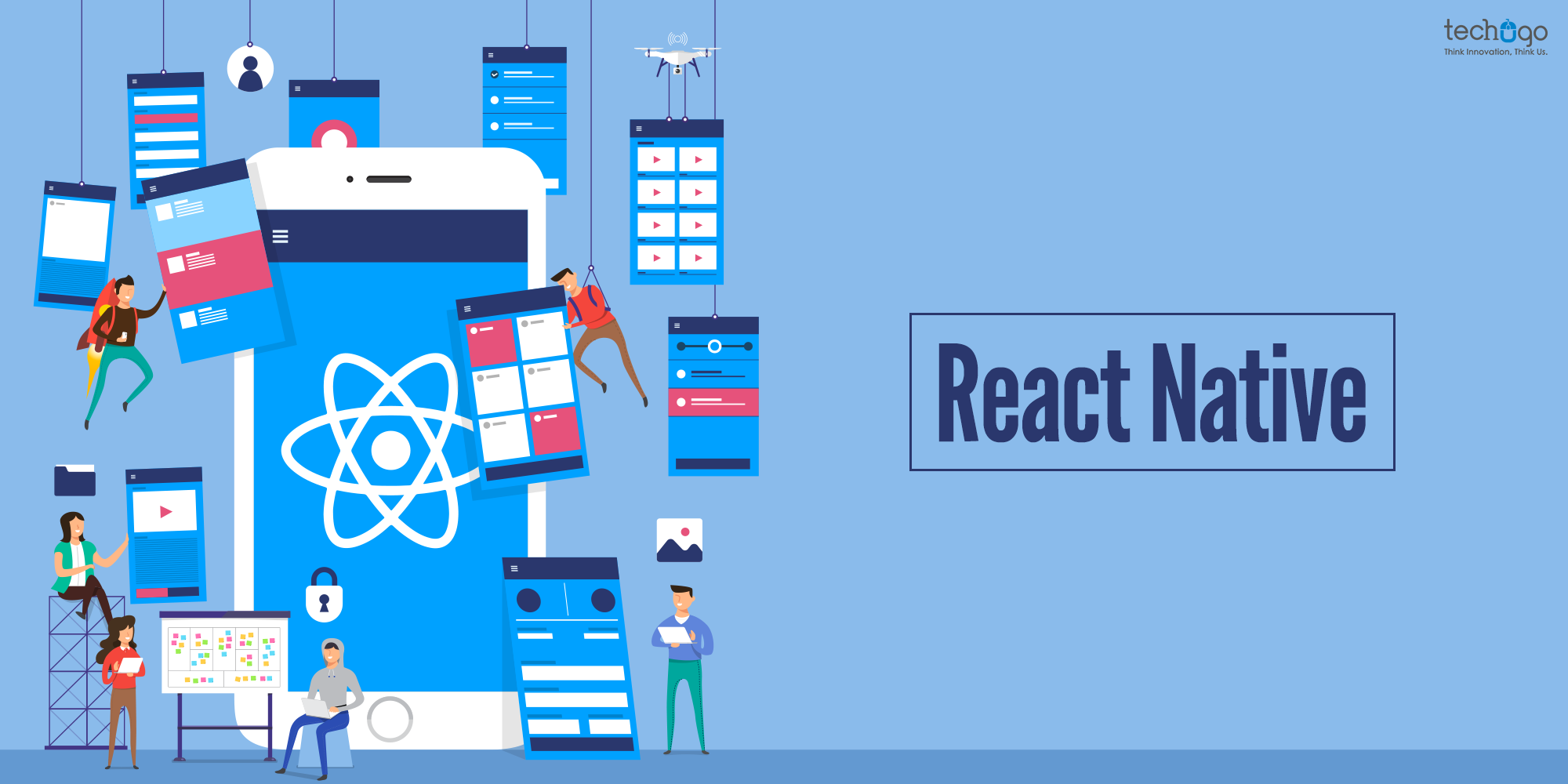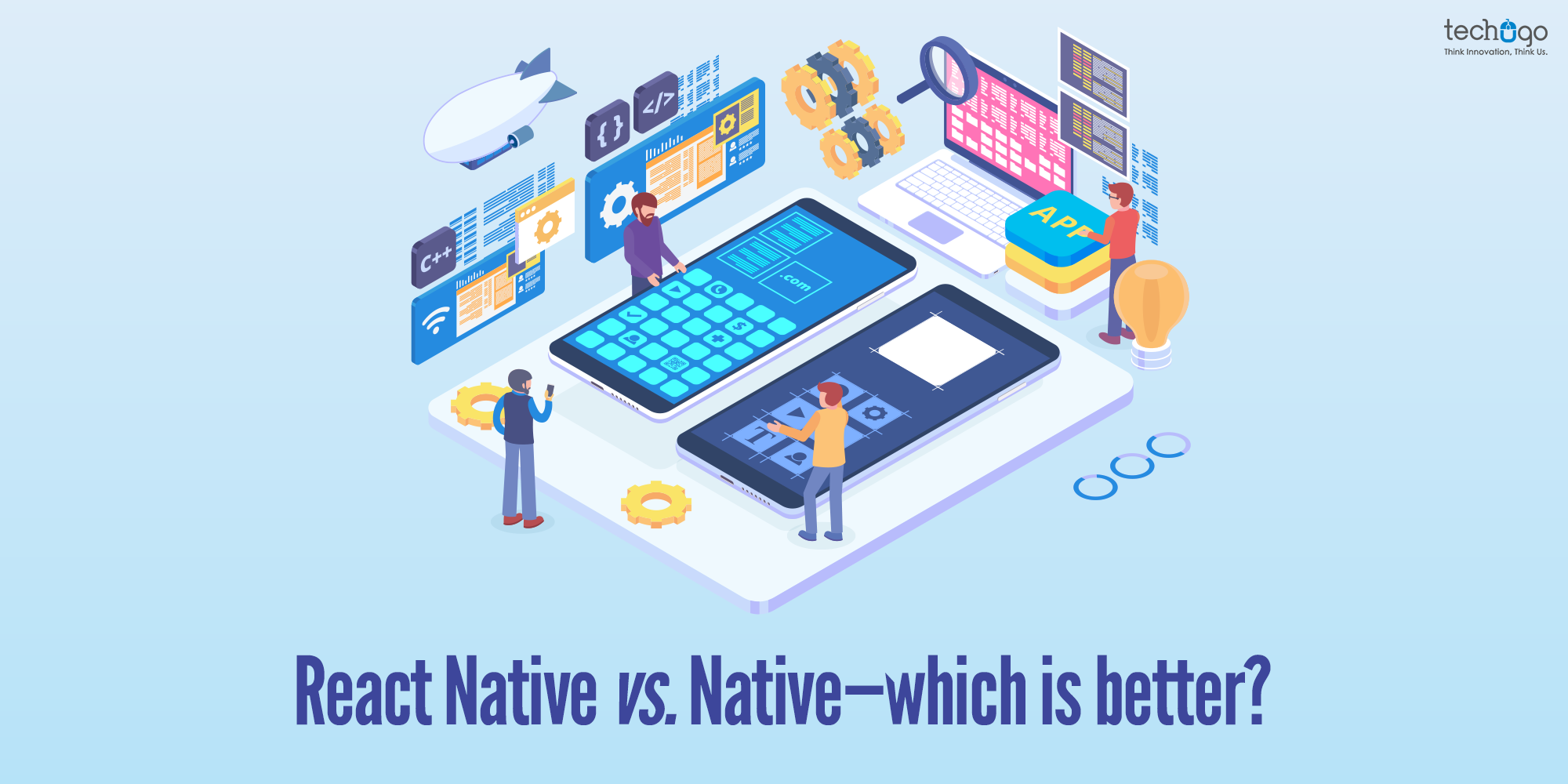19 Sep 2020
Updated on December 15th, 2022
REACT NATIVE VS. NATIVE APP DEVELOPMENT; WHO WINS THE GAME?

React Native popularity is on the rise, and some of the bigger brands in the market, such as Facebook, Instagram, Pinterest, Uber, Discord, and Skype, among other, have embraced this framework in their app solutions.
If you observe closely than you would be surprised to see the growth of the React Native community; in the last 4 years, React Native community has grown to over 2,000 contributors with average 300,000+ weekly downloads through npm.
But hold on, there is another side of the story waiting for you as well!
Despite React Native’s success, still many out there, believe in the conventional approach of moving ahead with Native apps, whereas some argue to have only React Native for their development cycle.
Hmmm, a tricky situation…isn’t it?
To take the best out of both, it is highly crucial to carefully consider what best these two technologies have got to offer.
In this article, we are going to weigh in on the matter by identifying the reasons that make React Native and Native so popular, and how embracing any of them works well under the hood for your business.
Based on insights from our experienced and highly-qualified React Native app developers’ team, we’re going to give an overview of both technologies and point out their main benefits and drawbacks worth knowing before making a choice one way or another.
Here we go…
React Native
It is a JavaScript framework and is one of the most popular cross-platforms. It is open-source with a glut of benefits for development.
Pros of React Native
- Single Code Base- yes, this is the best benefit to avail from React Native, it lets the app development for two different platforms to use one single code base.
- Lower development time- The single code base utilization, helps the developers to save time in development.
- JavaScript brings ease- React Native apps are based on JavaScript framework, which makes development easier for developers.
- Hot Reloading- This feature helps developers to make the changes in the app in real-time, and save their time and effort.
- Cost-effective-As React Native use a single codebase, it makes it easier for developers to reuse app components, leading to lesser cost in development.
Cons of React Native
- Lesser Native elements- RN is in the nascent stage, and as of now, it doesn’t allow any mobile application development company to use different native elements of the device such as Voice Recorder, Camera, etc.
- Limited third-party libraries- There is a lack of third-party libraries, that requires developers to incorporate the native modules, which increases the development efforts.
- Not all Native APIs are present- RN still needs to grow to use all Native APIs.
Native framework
The native framework works in accordance with the requirements and guidelines of a particular operating system. Here, apps are built separately for each operating platform.
Pros of Native
- APIs accessibility- Every device has different APIs with inbuilt functionalities, that can easily be utilized with the native framework.
- Third-Party libraries- Native comes with a wide variety of third-party libraries to choose from.
- Robust performance- The development of resource-intensive apps using 3D/AR/VR technology become easy with Native
Cons of Native
- Two apps development- This is the major downside of Native, where developers need to build two different apps for one product, which consumes the developer’s double efforts.
- More development time- As the app development for two different platforms, the time of development increases.
Final Takeaway
React Native vs. native—which is better?
TBH, there’s no clear answer to this question. Both have got a lot more to provide, and you can’t choose one over another. But when it comes to choosing one for your product, then it all depends on the project’s requirements. For multi-platform, React Native is the right choice, but if the demand comes only for one specific platform, then indeed going ahead with Native is the best option.
Both of these frameworks provide seamless opportunities for mobile app developers and help in building robust and innovative apps. Although, we recommend you to go for cross-platform development, as in one go only you get two apps, to cover a larger user-base. And this recommendation is coming from our experience and not from the thin air.
FAQs in bucket
- I have a budget constraint, will React Native help me?
Of course, it will. React Native is all about being faster and cheaper, sans any compromise made on the app’s features and performance. For a budget-constraint product, it is indeed the best choice.
- Will React Native help me get an app without compromising the code’s quality?
With React native your app development process expedites, but that has nothing to do with the code quality, and it remains as relevant as it could be. Worth to mention the app performance goes higher with the React Native development.
- Do bigger brands use React native?
Yes, some of the most popular apps are built with React Native, like Bloomberg, Gyroscope, and Uber Eats, to name a few.
- Why should I consider React Native for my startup?
Well, there are many reasons to pick React Native for your development journey, and when it comes to choosing it specifically for your startup, then reasons are more specific, such as:
- App gets delivered sooner and at a lower cost
- App testing becomes easier
- A perfect option for the MVP model
Have more queries in your mind?
Drop us a mail to share any queries related to React Native app development and don’t forget to Get in touch to talk to our experts about your next project!
Get in touch.
Write Us
sales@techugo.comOr fill this form







